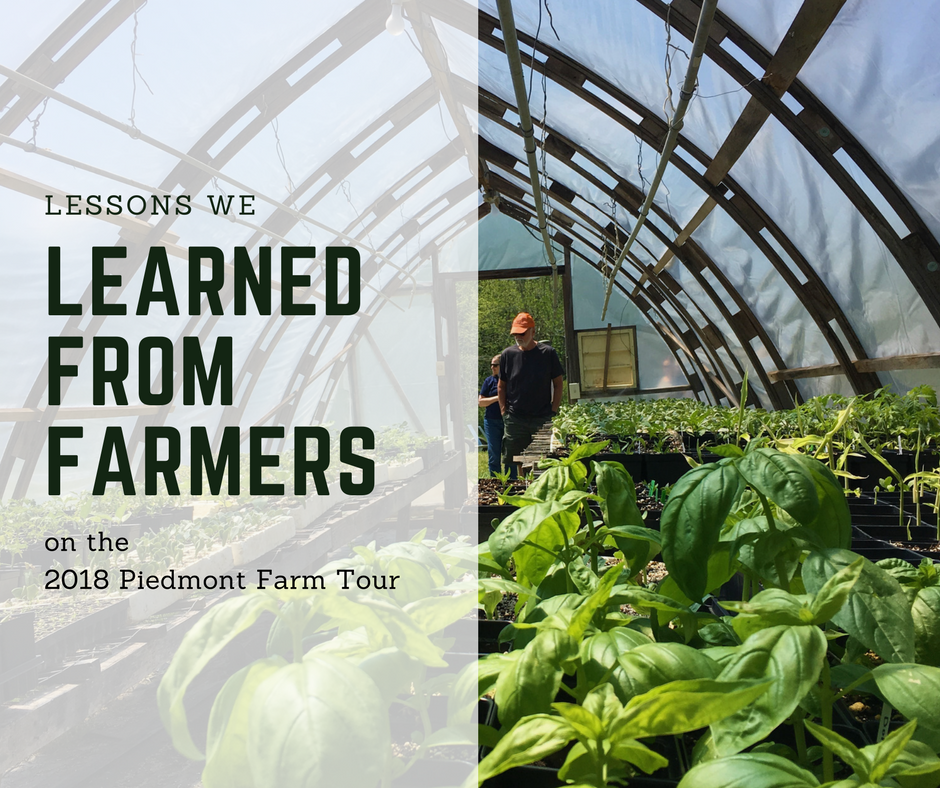Predator protection is a real concern
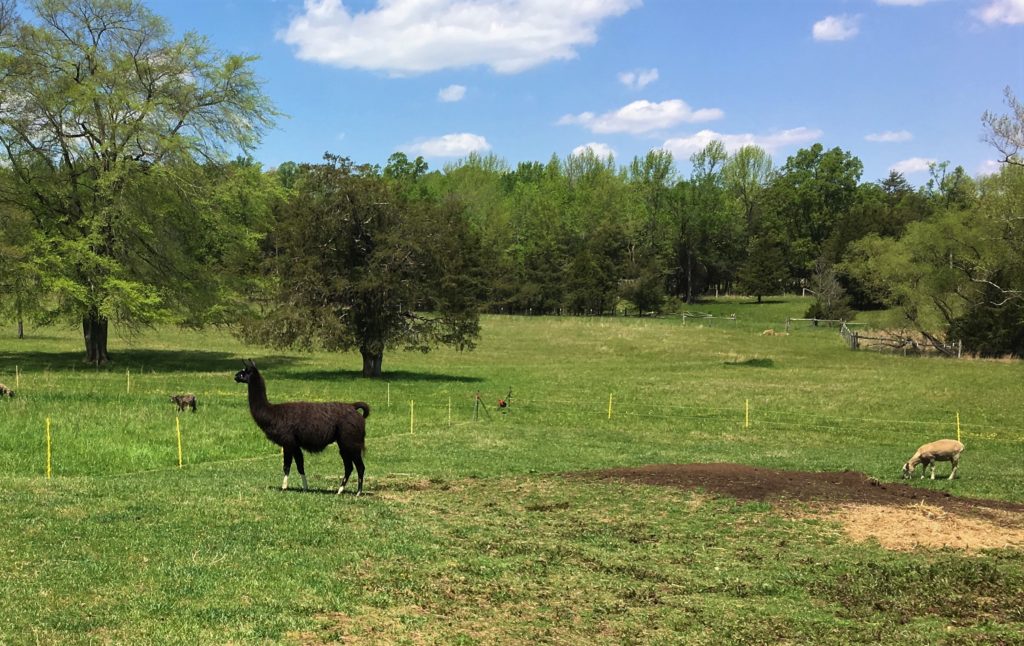
Stoney Mountain Farm in Burlington, NC, uses llamas to protect their sheep
For farmers who are raising animals with few defenses, predator pressure was high on their list of worries. Coyotes, vultures, and hawks were all cited as predators that were targeting local farms, especially those with sheep and chickens. This was true for both farms in rural and more urban settings. Farmers used a variety of techniques to protect against predators, from guard llamas and roosters to large trees in the pasture (to provide hiding spots) and strong fencing.
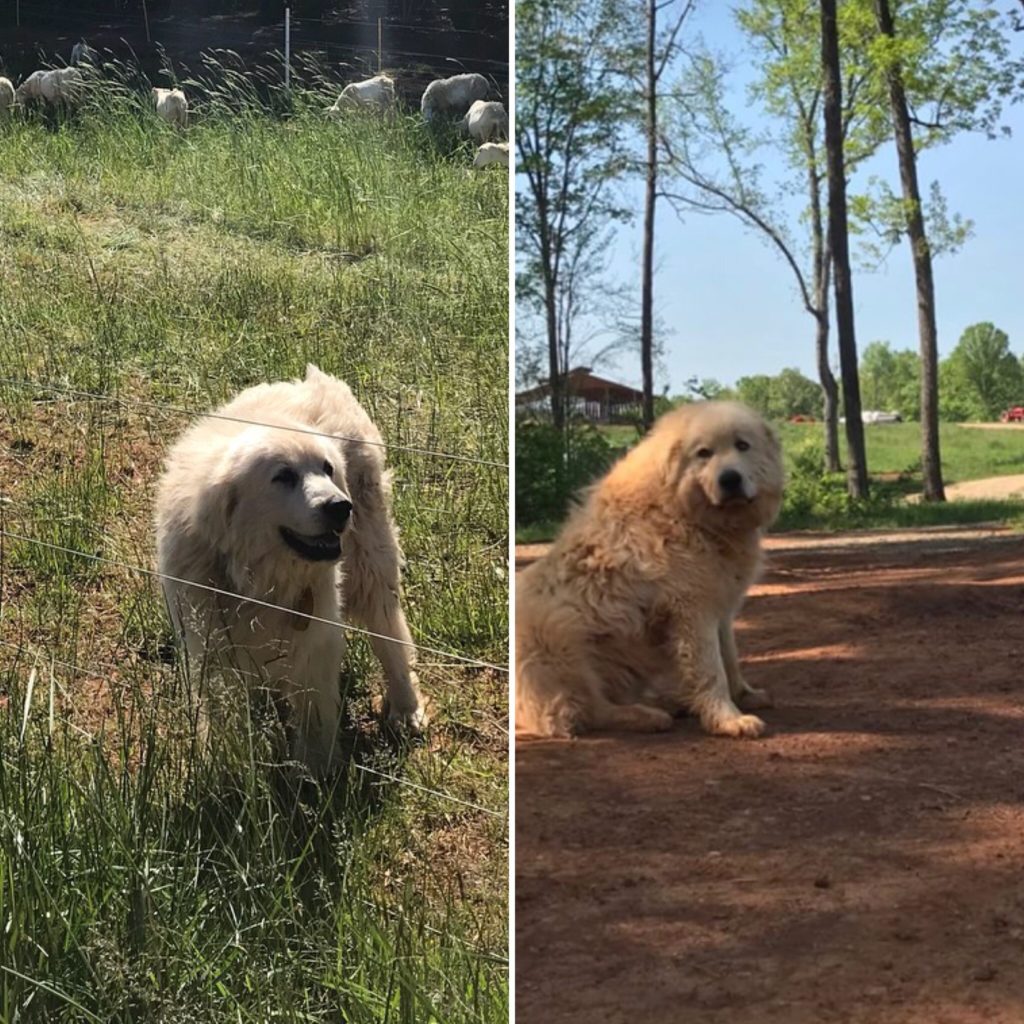
One of the most popular livestock guardians in the Piedmont is the beautiful Great Pyrenees, who comes in white (and occasionally orange!).
Farmers are doing amazing things to extend the season of their produce
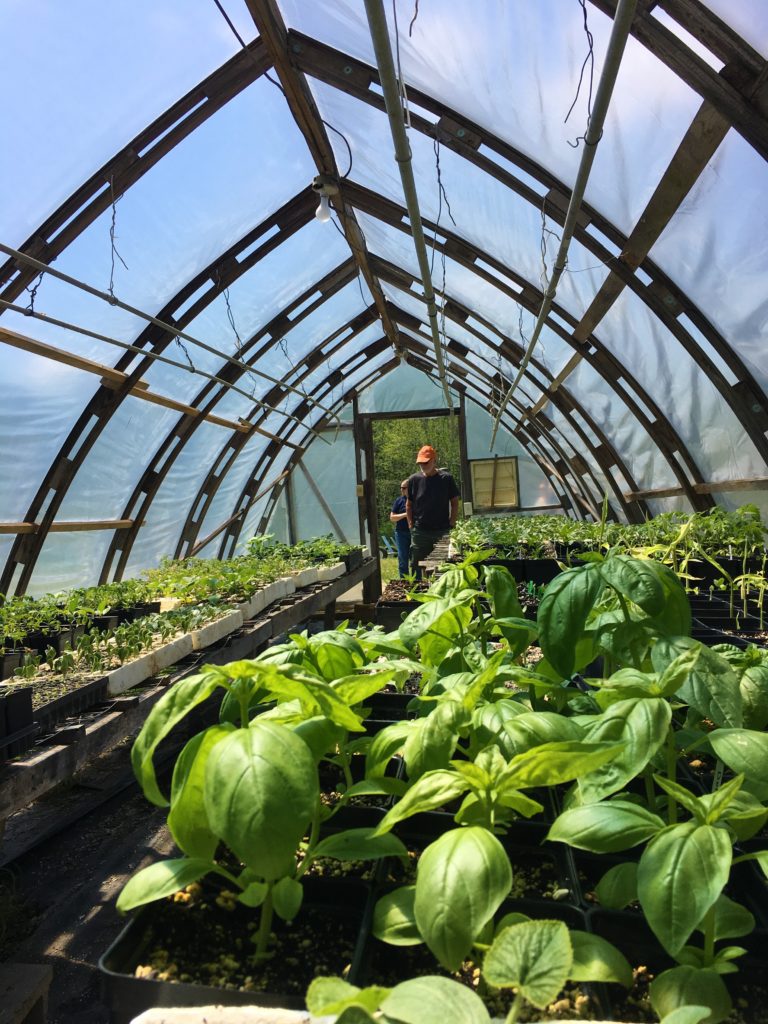
Basil flourishing inside the greenhouse at Redbud Farm
High tunnels, low tunnels, greenhouses, caterpillar tunnels. All manner of techniques and structures were used to provide early season germination, as well as earlier (and later!) product to market. Apparently, we all want that first tomato or last pepper.
Getting folks to try food goes a long way in creating a bond with customers who will come back for more
Chapel Hill Creamery was serving raclette with their Hickory Grove cheese over potatoes. The youth council at Transplanting Traditions talked about teaching American farmers-market customers about common produce in Burma that are now grown at the farm, such as bitter melon and snake gourd. Sunset Ridge Buffalo Farm was serving burgers cooked from their bison. Many local farmers are growing products new to our menus and are working hard to get customers to become comfortable with these ingredients.
Local farms are diversifying to stay profitable
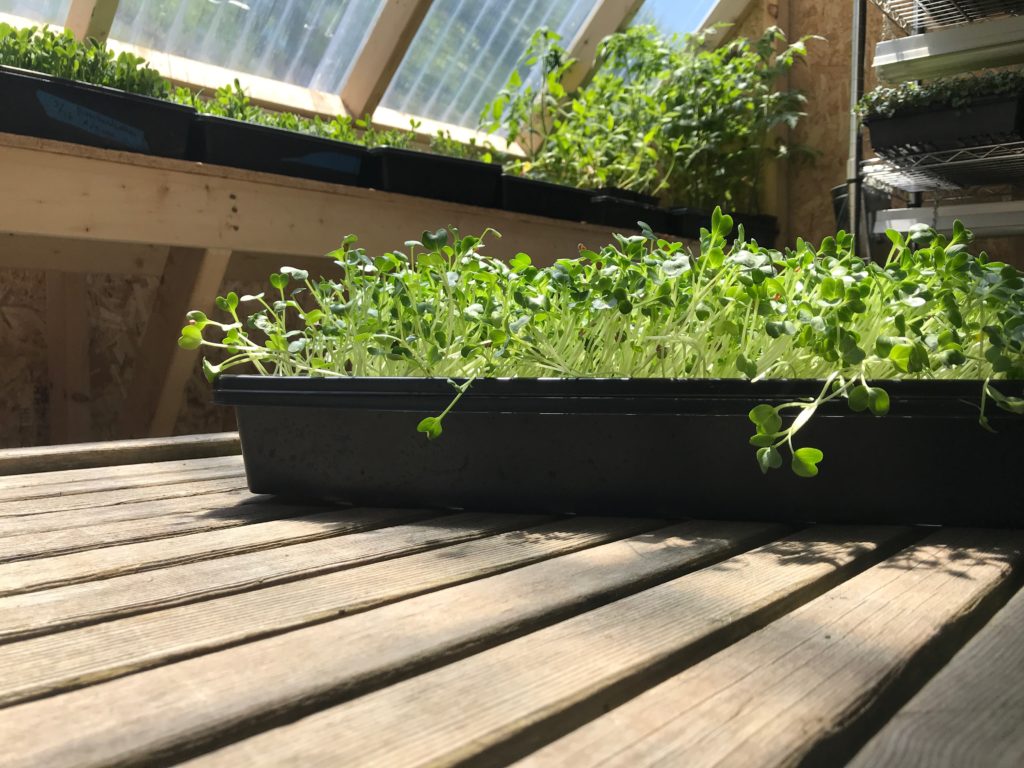
Microgreens at Mama Springs in Durham, NC
We heard about selling to restaurants, wholesalers, and farmers markets, as well as jams and field trips, pop-up dinners, farm stands, mushroom workshops, niche crops, CSAs, and even weddings. If you’ve thought about a way a farm could make a profit, farmers probably have, too.
Farming is a family affair

Farmer Jenn and her family at Chickadee Farms in Clayton, NC
We met sisters and kids and moms and dads and the second cousins of the people listed as “farmers” in the brochure. For weekends when there are hundreds of extra people on the farm such as on the Piedmont Farm Tour, all of the extra help was appreciated, but we also heard how family members were integral parts of the farm business.
Farmers teach each other
It’s no secret that farmers work long hours. It can be hard to have time to meet-up with other growers to talk shop. Whether it’s well after the sun goes down, during a quick lunch, or in the midst of marketing their business, farmers use tools like Instagram to learn from one another whenever they can.
Several farmers talked about keeping an eye on experienced growers (particularly those in their climate) through social media for new techniques, favored varieties of plants and/or breeds, equipment hacks, and even when to refine their timing of doing various things (e.g., breaking ground, planting certain crops, pest management efforts).
Most recently, during the #farmtourtakeover on our Instagram account, we saw lots of peer-to-peer sharing – like the one above from In Good Heart Farm – from our farmers.
On the tour itself, we saw other farmers taking the tour and learning from their farmer neighbors, as well as those that aspire to be on the tour in the future and are just starting their farm enterprise. Farmers across the Piedmont shared their knowledge, mistakes, and successful over the whole weekend.


